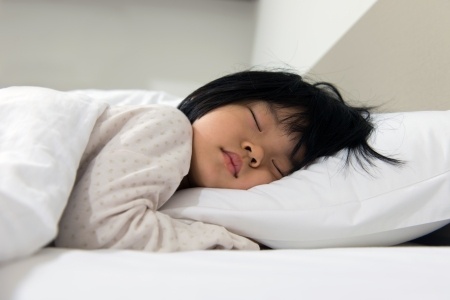 We all know that a healthy human being needs a certain amount of food and water each day to remain healthy. We also know that to stay healthy, we need a certain amount sleep each night. But, how much sleep does a person need? The answer may surprise you.
We all know that a healthy human being needs a certain amount of food and water each day to remain healthy. We also know that to stay healthy, we need a certain amount sleep each night. But, how much sleep does a person need? The answer may surprise you.
One would think by now, here in the 21st century, that doctors and scientists would have nailed that answer down. The truth, however, is we simply do not know, for sure, exactly how much sleep any one person needs. The reason for this is because every person is different, and has different sleep requirements. There are, however, some recommendations we can use as guidelines, and the variable in these ranges is age. How old a person is determines a lot as to how much sleep he or she needs.
The following comes to us from the National Sleep Foundation (NSF) and it contains some new guidance as to how much sleep we need, depending on age. There are the NSF recommendations:
- Newborns (0-3 months ): In the past, it was thought newborns needed 12 to 18 hours of sleep per day. It is now thought 14 to 17 hours each day is adequate.
- Infants (4-11 months): In the past, 14 to 15 hours per day was considered optimal, now it is recommended infants get 12 to15 hours.
- For Toddlers (1-2 years): 11 to 14 hours per day is now recommended. In the past, it was thought that 12 to 14 hours was best.
- Pre-school (3-5): It was 11 to 13 hours, now it is thought 10 to13 hours is best.
- School-aged children (6-13): 9 to 11 hours; previously it was 10 to 11 hours per day.
- Teens (14-17): New guidance recommends 8 to 10 hours; it was 8.5 to 9.5 hours per day.
- Young adults (18-25): Healthy sleep range is between 7 and 9 hours.
- Adults (26-64): Adults should try to get 7 to 9 hours of sleep per day.
- Seniors (65 and over): 7 to 8 hours is considered the healthy range.
If you or someone you know is not sleeping well, consider implementing the following:
- Put yourself on a sleep schedule. Go to bed at the same time each night, including weekends.
- Try to relax and reduce stress levels before going to bed. Exercise daily to help reduce both of these.
- Check your mattress and pillow for comfort. Get new ones if needed.
- Check your bedroom for temperature, light, and unwanted sounds.
- Avoid caffeine and sugar before bedtime.
- Turn off the TV or computer while in bed.
Lastly, if you are suffering from snoring, leg tingling or cramps, or sleep apnea, see a professional sleep disorder doctor to treatment. There can be underlying causes for these problems that you must have checked out to avoid any possible serious health issue.
No one can stay healthy for long without the proper amount of restful sleep each night. Make getting the right kind of sleep a priority in your life and you will feel the difference right away.

